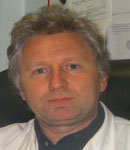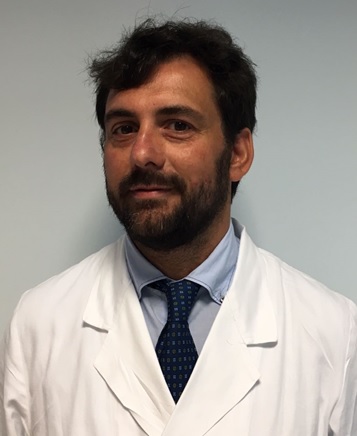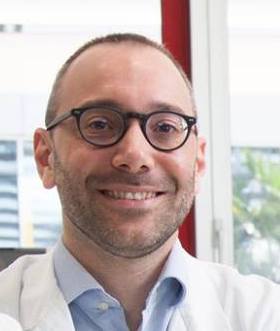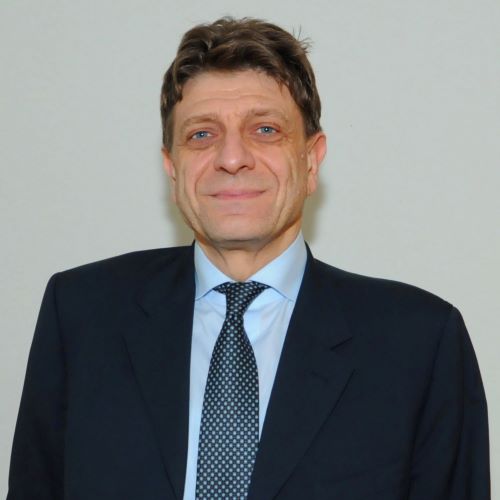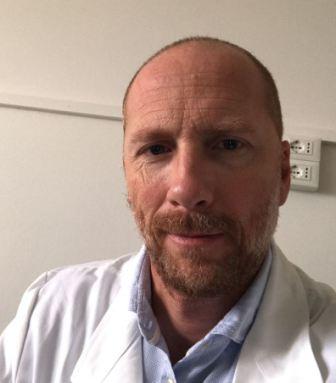Studiare
In questa sezione è possibile reperire le informazioni riguardanti l'organizzazione pratica del corso, lo svolgimento delle attività didattiche, le opportunità formative e i contatti utili durante tutto il percorso di studi, fino al conseguimento del titolo finale.
Calendario accademico
Il calendario accademico riporta le scadenze, gli adempimenti e i periodi rilevanti per la componente studentesca, personale docente e personale dell'Università. Sono inoltre indicate le festività e le chiusure ufficiali dell'Ateneo.
L’anno accademico inizia il 1° ottobre e termina il 30 settembre dell'anno successivo.
Calendario didattico
Il calendario didattico indica i periodi di svolgimento delle attività formative, di sessioni d'esami, di laurea e di chiusura per le festività.
| Periodo | Dal | Al |
|---|---|---|
| INF LEG - 2° anno 1° sem | 3-ott-2016 | 22-dic-2016 |
| INF LEG - 1° anno 1° sem | 4-ott-2016 | 22-dic-2016 |
| INF LEG - 3° anno 1° sem | 17-ott-2016 | 22-dic-2016 |
| INF LEG - 1° anno 2° sem | 1-feb-2017 | 7-apr-2017 |
| INF LEG - 3° anno 2° sem | 13-mar-2017 | 12-mag-2017 |
| INF LEG - 2° anno 2° sem | 19-apr-2017 | 30-giu-2017 |
| Sessione | Dal | Al |
|---|---|---|
| INF LEG SESSIONE INVERNALE 1° - 2° ANNO | 9-gen-2017 | 31-gen-2017 |
| INF LEG SESSIONE INVERNALE 3° ANNO | 13-feb-2017 | 10-mar-2017 |
| INF LEG SESSIONE ESTIVA | 3-lug-2017 | 31-lug-2017 |
| INF LEG SESSIONE AUTUNNALE | 4-set-2017 | 29-set-2017 |
| Sessione | Dal | Al |
|---|---|---|
| SESSIONE AUTUNNALE | 1-nov-2017 | 31-dic-2017 |
| SESSIONE PRIMAVERILE | 1-mar-2018 | 30-apr-2018 |
| Periodo | Dal | Al |
|---|---|---|
| Festa di Tutti i Santi | 1-nov-2016 | 1-nov-2016 |
| Festa dell'Immacolata | 8-dic-2016 | 8-dic-2016 |
| Vacanze Natalizie | 23-dic-2016 | 7-gen-2017 |
| Vacanze Pasquali | 14-apr-2017 | 18-apr-2017 |
| Festa della Liberazione | 25-apr-2017 | 25-apr-2017 |
| Festa dei Lavoratori | 1-mag-2017 | 1-mag-2017 |
| Festa della Repubblica | 2-giu-2017 | 2-giu-2017 |
| Vacanze Estive | 14-ago-2017 | 19-ago-2017 |
| Descrizione | Periodo | Dal | Al |
|---|---|---|---|
| INF LEG TIROCINIO 3° ANNO (1 esp.) | INF LEG TIROCINIO 3° ANNO (1 esp.) | 9-gen-2017 | 10-feb-2017 |
| INF LEG TIROCINIO 2° ANNO (1 esp.) | INF LEG TIROCINIO 2° ANNO (1 esp.) | 6-feb-2017 | 10-mar-2017 |
| INF LEG TIROCINIO 2° ANNO (2 esp.) | INF LEG TIROCINIO 2° ANNO (2 esp.) | 20-mar-2017 | 13-apr-2017 |
| INF LEG TIROCINIO 1° ANNO (1 esp.) | INF LEG TIROCINIO 1° ANNO (1 esp.) | 19-apr-2017 | 23-mag-2017 |
| INF LEG TIROCINIO 3° ANNO (2 esp.) | INF LEG TIROCINIO 3° ANNO (2 esp.) | 15-mag-2017 | 28-giu-2017 |
| INF LEG TIROCINIO 1° ANNO (2 esp.) | INF LEG TIROCINIO 1° ANNO (2 esp.) | 29-mag-2017 | 30-giu-2017 |
| INF LEG TIROCINIO 3° ANNO (3 esp.) | INF LEG TIROCINIO 3° ANNO (3 esp.) | 4-set-2017 | 13-ott-2017 |
| INF LEG TIROCINIO 2° ANNO (3 esp.) | INF LEG TIROCINIO 2° ANNO (3 esp.) | 4-set-2017 | 6-ott-2017 |
Calendario esami
Gli appelli d'esame sono gestiti dalla Unità Operativa Segreteria Corsi di Studio Medicina.
Per consultazione e iscrizione agli appelli d'esame visita il sistema ESSE3.
Per problemi inerenti allo smarrimento della password di accesso ai servizi on-line si prega di rivolgersi al supporto informatico della Scuola o al servizio recupero credenziali
Per dubbi o domande leggi le risposte alle domande più frequenti F.A.Q. Iscrizione Esami
Docenti
 oncologia.medica.leg@aulsslegnago.it
oncologia.medica.leg@aulsslegnago.it
 daniela.cafaro@univr.it
daniela.cafaro@univr.it
 giulio.cesaro@aulsslegnago.it
giulio.cesaro@aulsslegnago.it
Cunico Laura
 laura.cunico@univr.it
laura.cunico@univr.it
 zenodebattisti@tiscali.it
zenodebattisti@tiscali.it
 Kiaretta@libero.it
Kiaretta@libero.it
Piano Didattico
Il piano didattico è l'elenco degli insegnamenti e delle altre attività formative che devono essere sostenute nel corso della propria carriera universitaria.
Selezionare il piano didattico in base all'anno accademico di iscrizione.
1° Anno
| Insegnamenti | Crediti | TAF | SSD |
|---|
Laboratori professionali (primo anno)
2° Anno Attivato nell'A.A. 2017/2018
| Insegnamenti | Crediti | TAF | SSD |
|---|
Laboratori professionali (secondo anno)
3° Anno Attivato nell'A.A. 2018/2019
| Insegnamenti | Crediti | TAF | SSD |
|---|
Laboratori professionali (terzo anno)
| Insegnamenti | Crediti | TAF | SSD |
|---|
Laboratori professionali (primo anno)
| Insegnamenti | Crediti | TAF | SSD |
|---|
Laboratori professionali (secondo anno)
| Insegnamenti | Crediti | TAF | SSD |
|---|
Laboratori professionali (terzo anno)
Legenda | Tipo Attività Formativa (TAF)
TAF (Tipologia Attività Formativa) Tutti gli insegnamenti e le attività sono classificate in diversi tipi di attività formativa, indicati da una lettera.
Metodologie di intervento nella comunita' (2018/2019)
L'insegnamento è organizzato come segue:
Obiettivi formativi
------------------------
MM: INFERMIERISTICA DI COMUNITA'
------------------------
- promuovere il benessere emotivo e sociale del paziente, della famiglia e delle persone significative che vivono eventi stressanti, ed intervenire efficacemente con le persone con disturbi mentali acuti o cronici. - riflettere sulle forme di famiglia e sui fenomeni sociali che influenzano il ruolo dei caregiver e le forme di assistenza a disabili e anziani - agire consapevolmente nelle comunità professionali nelle loro diverse forme gruppali - riconoscere e integrarsi nelle reti formali e informali dei servizi - attivare strategie di promozione del benessere psicosociale dei singolo e dei gruppi e le principali strategie di prevenzione dei problemi mentali; - attivare strategie di tutela del paziente portatore di disagio psichico e collaborare nella gestione del paziente con problema psichiatrico acuto e cronico. - gestire positivamente con il paziente di origine straniera/immigrata, e la sua famiglia, la relazione di cura
------------------------
MM: INFERMIERISTICA IN SALUTE MENTALE
------------------------
L’insegnamento si propone di offrire agli studenti conoscenze e riflessioni sulla comunità nelle sue diverse forme e declinazioni, al fine di saper lavorare nella comunità professionale (gruppi di lavoro), attuare interventi assistenziali integrati con la famiglia e la comunità di appartenenza dell’utente,per le diverse forme di bisogno e disagio e diventare un attivatore di collaborazioni ed integrazioni tra i servizi sanitari sociali e le reti informali della comunità
------------------------
MM: SOCIOLOGIA DELLA FAMIGLIA
------------------------
L'insegnamento intende introdurre gli studenti e le studentesse ad una visione della famiglia come istituzione sociale la cui funzione primaria rispetto alla cura è quella di assistenza sociale ai membri afferenti alla famiglia stessa. Saranno presentate le forme familiari che si affiancano alla famiglia cosiddetta tradizionale a partire dalla famiglia multigenerazionale. A partire da tali forme e dai fenomeni sociali che le hanno generate si proporranno alcune riflessioni sulle odierne forme di home care e sul ruolo del caregiver. Da ultimo si osserverà la famiglia come variabile epidemiologica attraverso alcuni modelli (teorici) di riferimento capaci di presentare modi di funzionamento della rete familiare rispetto a questioni legate a salue e malattia.
------------------------
MM: PSICOLOGIA DEI GRUPPI
------------------------
L’insegnamento si propone di offrire agli studenti conoscenze e riflessioni sulla comunità nelle sue diverse forme e declinazioni, al fine di saper lavorare nella comunità professionale (gruppi di lavoro), attuare interventi assistenziali integrati con la famiglia e la comunità di appartenenza dell’utente, per le diverse forme di bisogno e disagio e diventare un attivatore di collaborazioni ed integrazioni tra i servizi sanitari sociali e le reti informali della comunità.
------------------------
MM: PSICHIATRIA
------------------------
Acquisire conoscenze generali sull’ evoluzione culturale, storica, scientifica e normativa dell’assistenza psichiatrica, approfondendo le attuali conoscenze derivanti dall’ epidemiologia psichiatrica. Conoscenza generale della nosografia dei disturbi psichici; dei modelli ezio-patogenetici, biologici, sociali, psicologici; della prognosi. Conoscenza generale della semeiologia, della psicopatologia e della clinica delle principali malattie mentali. Conoscenza generale dei principi di intervento terapeutico, incluso l’utilizzo dei farmaci, nelle principali malattie mentali.
Programma
------------------------
MM: INFERMIERISTICA DI COMUNITA'
------------------------
Servizi socio-sanitari disponibili in risposta ai bisogni di salute nella comunità: assistenza domiciliare, cure intermedie, lungodegenze RSA, Centri diurni Metodologie di intervento infermieristico domiciliare setting di cura a domicilio Attivare reti di assistenza per sostenere l’utente e la famiglia in progetti di cure a lungo termine Le funzioni di cura nella famiglia • criteri per valutare e definire il carico assistenziale, strategie di supporto e servizi (posti di sollievo), • identificazione precoci di segni di burnout • supporto educativo ai familiari e alle assistenti private Dimissione pianificata e continuità assistenziale • criteri e strumenti di valutazione dei pazienti a rischio di dimissione difficile • processo e fasi della dimissione pianificata • attivare risorse e interventi per garantire la continuità assistenziale Forme di collaborazione con la Medicina Generale, l’infermiere di famiglia e di comunità
------------------------
MM: INFERMIERISTICA IN SALUTE MENTALE
------------------------
La rete territoriale dei servizi psichiatrici per acuti e riabilitativi Lo stigma e le conseguenze sulla persona con disturbo mentale e sulla famiglia Modalità di valutazione dei bisogni nelle persone con disturbo/disagio psichiatrico Approccio relazionale e assistenziale alla persona ed alla famiglia nelle principali situazioni di disagio/disturbo psichico in fase acuta e di stabilizzazione stato d’ansia, psicosi depressione gestione rischio di suicidio (accertamento e riduzione del rischio) eccitamento maniacale Approccio al paziente aggressivo Accertamento del rischio e prevenzione dei comportamenti aggressivi La contenzione in Psichiatria
------------------------
MM: SOCIOLOGIA DELLA FAMIGLIA
------------------------
Il corso affroneterà i seguenti argomenti: la famiglia come istituzion sociale; modelli e strutture familiari; supporto sociale (familiare) come fattore protettivo/di rischio per la salute; la rete familiare come variabile epidemiologica: modelli di riferimento.
------------------------
MM: PSICOLOGIA DEI GRUPPI
------------------------
Identità ed appartenenza e socializzazione nel gruppo Tipologie di gruppo: dare enfasi a gruppo di lavoro, di gruppi di auto mutuo aiuto, virtuali Processi dinamici e aspetti strutturali nei gruppi (entrare, stare ed uscire dal gruppo, ruoli, status e norme nel gruppo Discriminazione, conflitto e cooperazione nei gruppi Processi decisionali nei gruppi: leadership, reti di comunicazione, dal conflitto alla negoziazione, tecniche per decidere in gruppo e pianificazione del tempo.
------------------------
MM: PSICHIATRIA
------------------------
Programma sintetico: - Aspetti legislativi ed organizzativi in psichiatria - L’approccio bio-psico-sociale in psichiatria - La nosografia in psichiatria - Semeiotica, psicopatologia e clinica dei seguenti disturbi psichici: i disturbi psicotici (con particolare riguardo alla schizofrenia), i disturbi dell’umore (depressione e disturbo bipolare), i disturbi dello spettro ansioso, i disturbi di personalità. - Principi di trattamento in psichiatria: utilizzo dei farmaci antipsicotici, antidepressivi, stabilizzanti dell'umore, ansiolitici; psicoterapia e riabilitazione
Bibliografia
| Autore | Titolo | Casa editrice | Anno | ISBN | Note |
|---|---|---|---|---|---|
| Tatarelli Roberto | Manuale di psichiatria e salute mentale per le lauree sanitarie | Piccin | 2009 | ||
| Malaguti D. | Fare squadra. Psicologia dei gruppi di lavoro (Edizione 2) | il Mulino | 2018 | ||
| Cheever K.H., Hinkle J.L. | Infermieristica medico chirurgica. Brunner-Suddarth | Casa editrice ambrosiana | 2017 | capitolo 8 | |
| Paola Di Nicola | Famiglia: sostantivo plurale. Nuovi orizzonti e vecchi problemi (Edizione 2) | Franco Angeli | 2017 | 9788891759672 | capitolo 6 "Famiglia e reti di prossimità: la relazione di cura tra sfera privata e sfera pubblica" |
| A. Russel Hochschild | Per amore o per denaro | Il MUlino | 2006 | cap. 3 - La capacità di provare sentimento | |
| Invernizzi G, Bressi C | Psichiatria e Psicologia Clinica (Edizione 5) | McGraw Hill | 2017 |
Modalità d'esame
------------------------
MM: INFERMIERISTICA DI COMUNITA'
------------------------
Esame scritto con quesiti a risposta multipla L'esame è sufficiente se tutte le parti sono sufficienti
------------------------
MM: INFERMIERISTICA IN SALUTE MENTALE
------------------------
Esame scritto
------------------------
MM: SOCIOLOGIA DELLA FAMIGLIA
------------------------
L'esame è scritto. Si compone di 60 domande: 16 di psicologia e 11 per tutte le altre discipline. L'esame è sufficiente se tutte le parti sono sufficienti. Le domande sono formulate proponendo casi su cui ragionare, o per verificare la conoscenza/lo studio, o per verificare la comprensione degli argomenti.
------------------------
MM: PSICOLOGIA DEI GRUPPI
------------------------
Tipologia: Esame scritto Obiettivo della prova è l’accertamento delle conoscenze acquisite e delle capacità di ragionamento dello studente Contenuti: la prova scritta riguarda potenzialmente tutti gli argomenti del programma svolto durante le lezioni e dei materiali di studio consegnati. Modalità: domande chiuse con 4 opzioni di risposta e domande aperte. La prova scritta potrà essere integrata, a richiesta dello studente, con una verifica orale.
------------------------
MM: PSICHIATRIA
------------------------
esame scritto con domande a scelta multipla
Prospettive
Avvisi degli insegnamenti e del corso di studio
Per la comunità studentesca
Se sei già iscritta/o a un corso di studio, puoi consultare tutti gli avvisi relativi al tuo corso di studi nella tua area riservata MyUnivr.
In questo portale potrai visualizzare informazioni, risorse e servizi utili che riguardano la tua carriera universitaria (libretto online, gestione della carriera Esse3, corsi e-learning, email istituzionale, modulistica di segreteria, procedure amministrative, ecc.).
Entra in MyUnivr con le tue credenziali GIA: solo così potrai ricevere notifica di tutti gli avvisi dei tuoi docenti e della tua segreteria via mail e a breve anche tramite l'app Univr.
Gestione carriere
Tirocinio professionalizzante
Finalità del TirocinioLe attività di tirocinio sono finalizzate a far acquisire allo studente competenze specifiche previste dal profilo professionale. Per conseguire tali finalità formative, si possono attivare convenzioni con strutture, che rispondano ai requisiti di idoneità per attività, dotazione di servizi e strutture.
I 60 crediti minimi riservati al tirocinio sono da intendersi come impegno complessivo necessario allo studente per raggiungere le competenze professionali “core” previste dal rispettivo profilo professionale.
Il tirocinio professionale comprende:
- sessioni tutoriali che preparano lo studente all’esperienza;
- esercitazioni e simulazioni in cui si sviluppano le abilità tecniche, relazionali e metodologiche in situazione protetta prima o durante la sperimentazione nei contesti reali;
- esperienze dirette sul campo con supervisione;
- sessioni tutoriali e feedback costanti;
- compiti didattici, elaborati e approfondimenti scritti specifici e mandati di studio guidato.
Le esperienze di tirocinio devono essere progettate, valutate e documentate nel percorso dello studente. Durante ogni esperienza di tirocinio lo studente riceve valutazioni formative sui suoi progressi sia attraverso colloqui e schede di valutazione.
Al termine di ciascun anno di corso viene effettuata una valutazione sommativa (certificativa) per accertare i livelli raggiunti dallo studente nello sviluppo delle competenze professionali attese. La valutazione viene effettuata da una Commissione presieduta dal Coordinatore della Didattica Professionale (CDP), e composta da almeno un docente e da un Tutor professionale. Tale valutazione è la sintesi delle valutazioni formative, via via, documentate durante l’anno di corso, il profitto raggiunto negli elaborati scritti e le performance delle abilità tecniche assistenziali e relazionali dimostrate all’esame di tirocinio che può essere realizzato con esami simulati, colloqui, prove scritte applicative.
L’esame annuale di tirocinio prevede un unico appello per anno accademico, salvo particolari situazioni per le quali la commissione didattica potrà concedere un appello straordinario.
La valutazione sommativa del tirocinio sarà espressa e registrata nella carriera in trentesimi in base al livello di raggiungimento degli obiettivi. Le modalità di registrazione del voto di profitto sono:
- “assente” pre-iscritto che non ha frequentato alcuna esperienza di tirocinio;
- “ritirato” sospensione durante il tirocinio per problemi di salute, gravidanza o per motivazioni personali;
- “insufficiente” non raggiungimento del livello atteso negli obiettivi formativi (anche se lo studente ha sospeso la frequenza al tirocinio o non sostenuto l’esame finale).
Il Coordinatore della Didattica Professionale (CDP), ammette alla frequenza dell’esperienza di tirocinio previsto per l’anno di corso, gli studenti che hanno frequentato regolarmente:
- le attività teoriche, in particolare gli insegnamenti delle discipline professionali dell’anno in corso e dell’anno precedente
- laboratori professionali ritenuti propedeutici al tirocinio
Per maggiori informazioni consultare la pagina del servizio
Guida ai programmi degli insegnamenti
Guida ai programmi degli insegnamenti
Documenti
| Titolo | Info File |
|---|---|
|
|
pdf, it, 1594 KB, 12/12/22 |
|
|
pdf, it, 1310 KB, 02/09/21 |
Prova Finale
Per essere ammessi alla prova finale occorre avere conseguito tutti i crediti nelle attività formative previste dal piano degli studi, compresi quelli relativi all’attività di tirocinio. Alla preparazione della tesi sono assegnati 7 CFU.
La prova è organizzata, con decreto del Ministro dell'Istruzione, dell'Università e della Ricerca di concerto con il Ministro del Lavoro, della Salute e delle Politiche Sociali, in due sessioni definite a livello nazionale.
La prova finale, con valore di esame di Stato abilitante, si compone di:
- una prova pratica che consiste in un elaborato scritto strutturato, semi-strutturata o con domande aperte su casi/situazioni esemplificative della pratica professionale. La prova deve comprendere una selezione di quesiti di problem solving e di quesiti sulla presa di decisione nelle aree di competenza infermieristica.
- La redazione di un elaborato di tesi e sua dissertazione.
Le due diverse componenti della prova finale devono concorrere in egual misura alla determinazione del voto finale. In caso di valutazione insufficiente della prova pratica l’esame si interrompe e si ritiene non superato. La prova finale viene sospesa e va ripetuta interamente in una seduta successiva.
Il punteggio finale di Laurea è espresso in centodecimi con eventuale lode. Esso viene formato sommando la media ponderata dei voti conseguiti negli esami di profitto, rapportata a 110, con il punteggio ottenuto nella prova pratica (6 punti) e nella discussione della Tesi (parimenti fino ad un massimo di 6 punti)
La Commissione di Laurea potrà attribuire ulteriori punti anche in base a: presenza di eventuali lodi ottenute negli esami sostenuti; partecipazione progetto Erasmus 2 punti aggiuntivi; laurea entro i termini della durata normale del corso 1 punto
Lo studente avrà la supervisione di un docente del Corso di Laurea, detto Relatore, ed eventuali correlatori anche esterni al Corso di Laurea.
Scopo della tesi è quello di impegnare lo studente in un lavoro di formalizzazione, progettazione e di ricerca, che contribuisca sostanzialmente al completamento della sua formazione professionale e scientifica. Il contenuto della tesi deve essere inerente a tematiche o discipline strettamente correlate al profilo professionale.
La valutazione della tesi sarà basata sui seguenti criteri: livello di approfondimento del lavoro svolto, contributo critico del laureando, accuratezza della metodologia adottata per lo sviluppo della tematica.
È prevista la possibilità per lo studente di redigere l'elaborato in lingua inglese.
La scadenza per la presentazione della domanda di laurea e relativa documentazione, verrà indicata negli avvisi dello specifico Corso di Laurea
Documenti
| Titolo | Info File |
|---|---|
|
|
pdf, it, 242 KB, 19/01/24 |
|
|
pdf, it, 80 KB, 06/04/24 |
|
|
pdf, it, 43 KB, 06/04/24 |
|
|
pdf, it, 44 KB, 09/04/24 |
|
|
pdf, it, 148 KB, 06/04/24 |
|
|
pdf, it, 108 KB, 06/04/24 |
|
|
pdf, it, 115 KB, 06/04/24 |
|
|
pdf, it, 1487 KB, 18/02/22 |
|
|
pdf, it, 437 KB, 22/03/24 |
|
|
pdf, it, 957 KB, 22/03/24 |
|
|
pdf, it, 424 KB, 19/01/24 |
Linee guida per riconoscimento cfu
Lo studente che intende chiedere il riconoscimento di moduli o insegnamenti pregressi dovrà presentare domanda, entro il 30 novembre dell’anno accademico in corso, seguendo le indicazioni indicate al link seguente: https://www.univr.it/it/i-nostri-servizi/segreterie-studenti/gestione-carriere-studenti-medicina-e-chirurgia/riconoscimento-crediti-acquisiti-da-una-carriera-pregressa-medicina
Documenti
| Titolo | Info File |
|---|---|
|
|
pdf, it, 295 KB, 09/11/21 |
Orario lezioni
COMUNICAZIONE DEL PRESIDENTE DEL COLLEGIO DIDATTICO
Carissime Studentesse,
Carissimi Studenti,
di seguito un promemoria relativo alle modalità di erogazione della didattica per il corso di studio in Infermieristica A.A. 2022/2023.
In ottemperanza alle linee guida della Commissione didattica di Ateneo, che prevedono una didattica improntata ad un pieno recupero delle modalità regolari di erogazione in presenza, la Commissione didattica del CdL nella seduta del 29 settembre 2022, ha deliberato il pieno ritorno all’utilizzo della didattica frontale in presenza.
Solo nei casi di comprovata positività al COVID-19, e/o in situazioni di particolare fragilità (sempre correlate alla pandemia) sarà previsto il collegamento sincrono in modalità streaming; a tal proposito ogni Docente, sulla propria pagina web, darà chiare indicazioni sulla modalità di fruizione della didattica.
La modalità asincrona (registrazioni delle lezioni) non è prevista.
Nell’augurarvi un buon Anno Accademico, vi saluto cordialmente
Prof. Paolo F Fabene
Documenti
| Titolo | Info File |
|---|---|
|
|
pdf, it, 8849 KB, 20/10/22 |
|
|
pdf, it, 108 KB, 29/02/24 |
|
|
pdf, it, 90 KB, 22/04/24 |
|
|
pdf, it, 85 KB, 05/04/24 |
Area riservata studenti
Attività didattiche regime part-time
Modalità di richiesta
La domanda di iscrizione part-time può essere presentata all'inizio di ogni anno accademico e comunque entro il 30 novembre di ogni anno. Entro lo stesso termine, se necessario, lo studente potrà richiedere di tornare al regime full-time. Al link seguente la pagina del servizio https://www.univr.it/it/i-nostri-servizi/segreterie-studenti/flessibilita-nella-frequenza-dei-corsi/possibilita-di-iscrizione-part-time-e-ripristino-full-time
Una volta inviata la domanda, lo studente concorda in via preventiva con il Coordinatore della didattica professionale (CDP), il piano di studi che intende perseguire nel periodo di part-time compilando il modulo in allegato
Documenti
| Titolo | Info File |
|---|---|
|
|
octet-stream, it, 1309 KB, 21/10/22 |
Appelli d'esame
Documenti
| Titolo | Info File |
|---|---|
|
|
pdf, it, 92 KB, 17/01/24 |
|
|
pdf, it, 84 KB, 17/01/24 |
|
|
pdf, it, 92 KB, 22/04/24 |
|
|
pdf, it, 145 KB, 17/01/24 |
Dossier Informativi per lo studente
Documenti
| Titolo | Info File |
|---|---|
|
|
pdf, it, 271 KB, 19/01/24 |
|
|
pdf, it, 235 KB, 19/01/24 |
|
|
pdf, it, 216 KB, 19/01/24 |
 +39 045 812 6485
+39 045 812 6485






